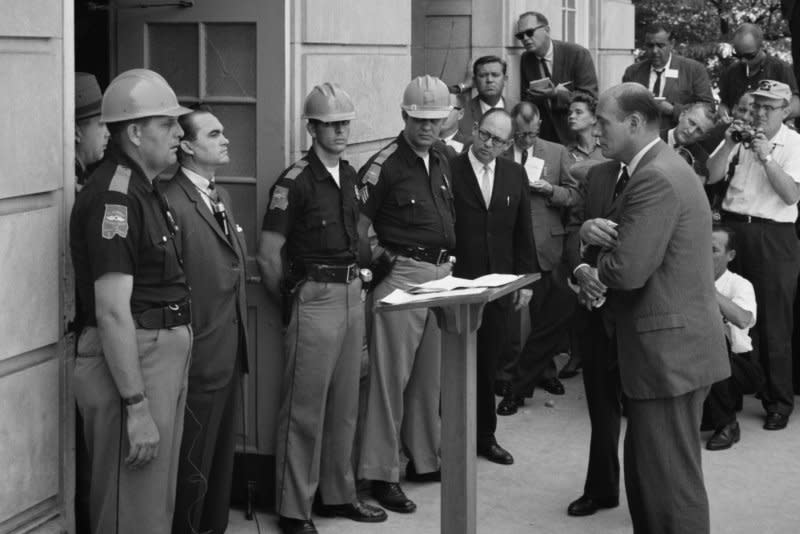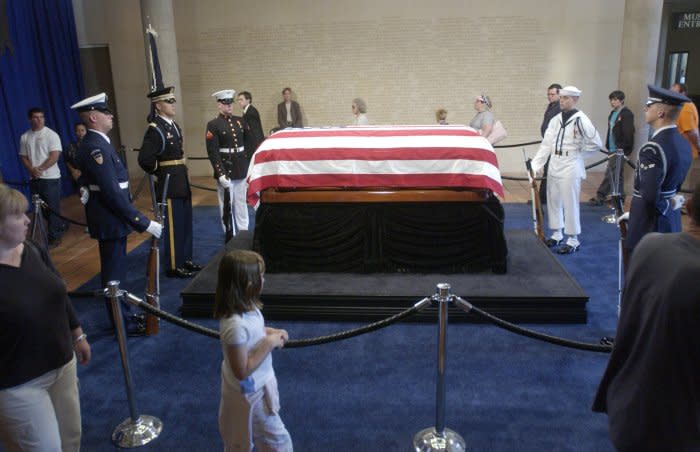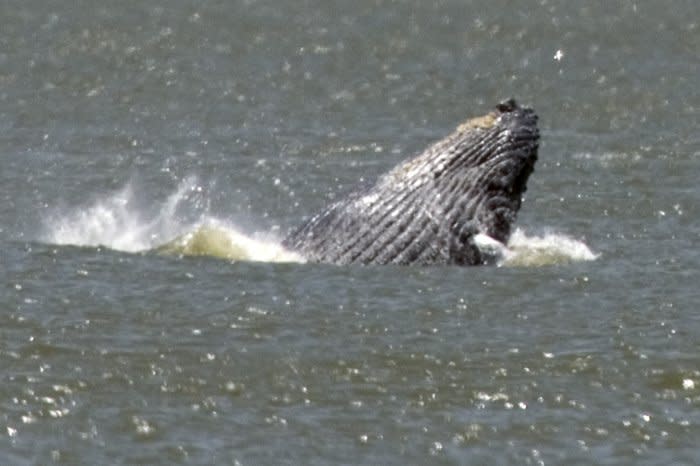On This Day, June 11: George Wallace tries to block integration of Univ. of Alabama

On this date in history:
In 1776, John Adams, Benjamin Franklin, Thomas Jefferson, Robert Livingston and Roger Sherman -- the so-called Committee of Five -- were appointed by the Continental Congress to write a declaration of independence for the American colonies from England.
In 1919, Sir Barton became the first horse to win thoroughbred racing's Triple Crown.
In 1927, U.S. President Calvin Coolidge welcomed Charles Lindbergh home after the pilot made history's first non-stop flight across the Atlantic Ocean, New York to Paris.
In 1955, French auto racer Pierre Levegh's Mercedes crashed into a crowd of spectators at the 24 Hours of Le Mans race at Circuit de la Sarthe in Le Mans, France, killing 84 people, including the driver. It was the deadliest auto racing crash in history.

In 1963, for a brief moment, Gov. George Wallace blocked the enrollment of two Black students to the University of Alabama. His acts of defiance would be short-lived as President John F. Kennedy federalized the Alabama National Guard, instructing them to end Wallace's blockade of the school.
In 1967, protests and violence erupted in Tampa, Fla., after a police officer fatally shot 19-year-old Martin Chambers on suspicion of burglary. The race riots lasted three days, during which multiple businesses burned to the ground and a sheriff's deputy -- Sgt. Don Williams -- died of a heart attack.

In 1967, the Six-Day War between Israel and its Arab neighbors ended with a U.N.-brokered cease-fire. The Israeli forces achieved a swift and decisive victory.


In 1985, Karen Ann Quinlan died at age 31 in a New Jersey nursing home, nearly 10 years after she lapsed into an irreversible coma. Her condition had sparked a nationwide controversy over her "right to die."
In 1987, Margaret Thatcher became the first British prime minister in 160 years to win three consecutive terms.

In 1990, the U.S. Supreme Court struck down an anti-flag-burning law passed by Congress the year before.
In 1993, Jurassic Park opened and broke the record for the biggest three-day opening weekend with an estimated $48 million. That record has since been surpassed hundreds of times.

In 1994, after 49 years, the Russian military occupation of what had been East Germany ended with the departure of the Red Army from Berlin.
In, 2001, Timothy McVeigh was executed in Terre Haute, Ind., for the April 19, 1995, Oklahoma City bombing that killed 168 people and injured hundreds.
In 2004, Ronald Reagan reached his final resting place at his library in Southern California, closing a week of ceremony and tribute to the late president.

In 2011, the leader of al-Qaida in East Africa, Fazul Abdullah Mohammed, was killed in a shootout with Somali soldiers at a checkpoint in Mogadishu.
In 2018, the Federal Communications Commission allowed net neutrality rules enacted under the Obama administration to expire. The rules had required Internet service providers to enable access of all content and applications regardless of the source and without favoring or blocking particular products or websites.
In 2021, a Massachusetts lobster diver survived being swallowed up and then spat out by a humpback whale off the coast of Cape Cod.



